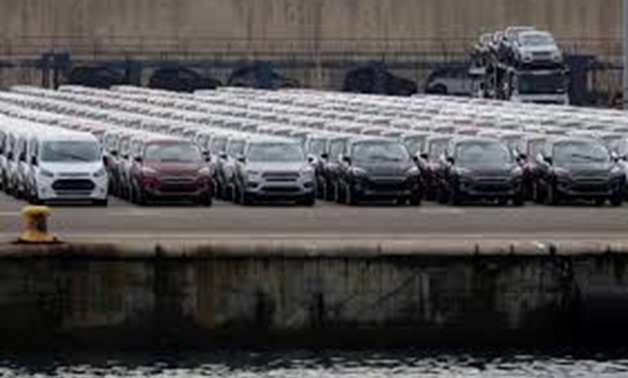
FILE PHOTO - Parked cars are pictures at the car terminal at the port of Valencia, Spain May 29, 2018. Picture taken May 29, 2018. REUTERS/Heino Kalis
CAIRO – 6 December 2018: Disputes have spread amongst Egyptians about the prices of European cars after the final exemptions of customs in January.
The custom cuts of European cars come after Egypt started implementing the trade cooperation agreement with the European Union in 2010 as part of the Egyptian-European Agreement, so European car customs have begun to decline gradually.
The agreement, which came into force in mid-2004, stipulates establishing a free trade area during a transitional period of 12 years. It also liberalizes the Egyptian imports of industrial goods with European origins in a period of up to 16 years.
Egypt used the right to postpone the reduction twice in the previous year and by the start of 2019, customs will be reduced to hit 0 percent for all cars and Europe’s supply of all engine capacities.
Egypt Today reviews factors that determine the final sale price of cars in Egypt After cutting customs on European cars, including taxes and fees.
These factors include the dollar rate, the custom dollar, schedule taxes, development fees and most importantly agents’ profit margins.
Dollar Rate
The price of imported cars depends on the exchange rate of the US dollar against the Egyptian pound, as the dollar is the currency of the international settlement of all external obligations of countries. Since the flotation of the Egyptian currency in November 2016, the exchange rate is around LE 17.78 for buying and LE 17.99 for selling.
Egypt floated its currency, losing around 50 percent of its value as part of the economic reform program which imposed taxes, including the value-added tax (VAT), and cut energy subsidies, aiming to reduce the budget deficit.
Custom Dollar
Another factor that popped up in the automotive market and will impact the prices of cars is the hike of the custom dollar for non-essential products, including cars, to about LE 18 after being at LE 16 since the liberalization of the currency.
By the end November, Minister of Finance Mohamed Ma’it announced raising the customs dollar for non-essential and luxury commodities to LE 17.9737 during December, up from LE 16 in November and prior months.
Ma’it clarified that the list of non-essential and luxury commodities included mobile phones, computers, Cars, some kinds of shoes, furniture, and cigarettes.
As per this decision, prices of 2000CC cars will hike by 5 to 10 percent, 1600CC cars will rise 2 percent for cars from the European Union, and 4 percent for cars that are not subject to the agreement.
Schedule Taxes
A tax is imposed in special rates or at specified values on the sale or importation of local or imported goods and services provided in the schedules accompanying the VAT Act.
This tax is levied on the sale, performance or importation of the goods and services provided in the schedules of the law and up to 24 percent.
Development fees
The latest amendments to Law No. 147 of 1984 concerning the imposition of a fee for the development of the state's financial resources, including imported cars, on the basis of the value of the car, in addition to the customs tax and value added tax and other taxes and fees.
Agents’ Profit Margins
This margin has no rules or constants because it is subject to the rules of supply and demand in the local market, so it is a relative factor determined by the agent only.


Comments
Leave a Comment